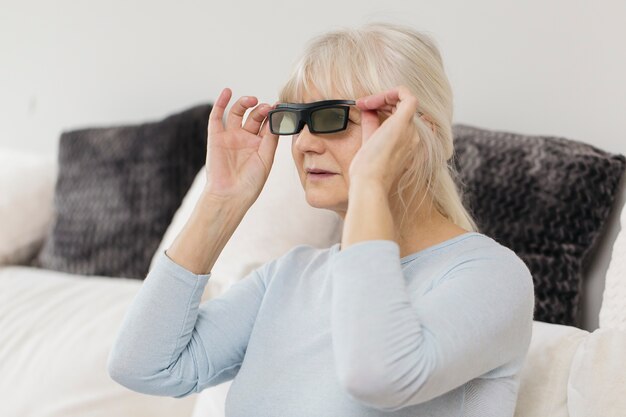
Aging is a natural part of life, and as you grow older, you may start to notice changes in your overall health, including your vision. While these changes are often a normal part of aging, it’s important to stay informed and seek advice from your optician if you have any concerns.
As we age, our eyes become more prone to various conditions, and understanding why these changes happen can help you recognize early signs of potential issues. While some changes may not be serious, others, like glaucoma, macular degeneration, and diabetic retinopathy, can significantly impact your vision. In this article, we’ll explain why your eyesight changes with age and what steps you can take to protect your eye health.
**Changes in Vision Around Age 40**
By the time you hit your 40s, you may notice that your near vision starts to get blurry. This common condition, known as presbyopia, happens to everyone as they age. It occurs because the lens inside your eye becomes less flexible, making it harder to focus on nearby objects. Signs of presbyopia include needing to hold things farther away to see them clearly, experiencing headaches, or struggling to see in dim lighting.
Thankfully, presbyopia can be easily managed with corrective lenses, such as Varilux lenses, which help you see clearly at various distances. Routine eye exams are key to diagnosing presbyopia, so don’t skip those regular check-ups with your optician.
**Vision Changes in Your 60s and Beyond**
As you move into your 60s, the chances of developing certain eye conditions increase. Early detection is crucial since many age-related eye diseases can be treated more successfully when caught early.
Cataracts, a common age-related eye condition, affect about 30% of people over 65, with the risk increasing further after age 70. Symptoms of cataracts include blurry vision, dull or faded colors, and a halo effect around lights. Fortunately, cataract surgery today is both effective and safe, providing significant improvements in vision.
Another condition to be aware of is age-related macular degeneration (AMD), which primarily affects central vision and is one of the leading causes of blindness. While the exact cause of AMD is not fully understood, it’s closely linked to aging. Regular visits to your optician can help diagnose AMD early, giving you better treatment options.
**Common Age-Related Vision Changes**
As you get older, it’s normal to experience certain changes in your eyesight, including:
– **Needing more light:** You may notice you need brighter lighting while reading or performing tasks to see clearly.
– **Changes in color perception:** The lenses in your eyes can discolor with age, making it harder to distinguish between shades.
– **Reduced tear production:** Dry, irritated eyes become more common as tear production decreases, particularly for women going through hormonal changes. Adequate tears are essential for keeping your eyes healthy and your vision clear.
– **Glare sensitivity and difficulty with near work:** You might find reading or working on close-up tasks more challenging and may become more sensitive to glare.
Regular eye checks and maintaining a healthy diet can help slow down these changes and ensure your vision stays as sharp as possible.
**How to Protect Your Vision as You Age**
The best way to safeguard your eyesight is to adopt a healthy lifestyle. Eating a balanced diet, avoiding smoking, and making time for regular eye exams can significantly reduce your risk of vision problems. If you notice any changes in your vision or have a family history of eye issues, it’s important to discuss your concerns with your optician. Conditions like diabetes or high blood pressure can also increase your likelihood of eye problems, so managing any existing health issues is key.
**Final Thoughts**
Your eyesight plays a vital role in living a fulfilling life. Taking good care of your vision by following a healthy lifestyle and staying on top of regular check-ups can make a big difference. If you’re dealing with chronic conditions like diabetes or high blood pressure, don’t delay in consulting your doctor, as these can increase your risk of eye complications.
Whether you need new glasses or advice from a professional, always opt for trusted eye care services to ensure your vision remains as healthy as possible.